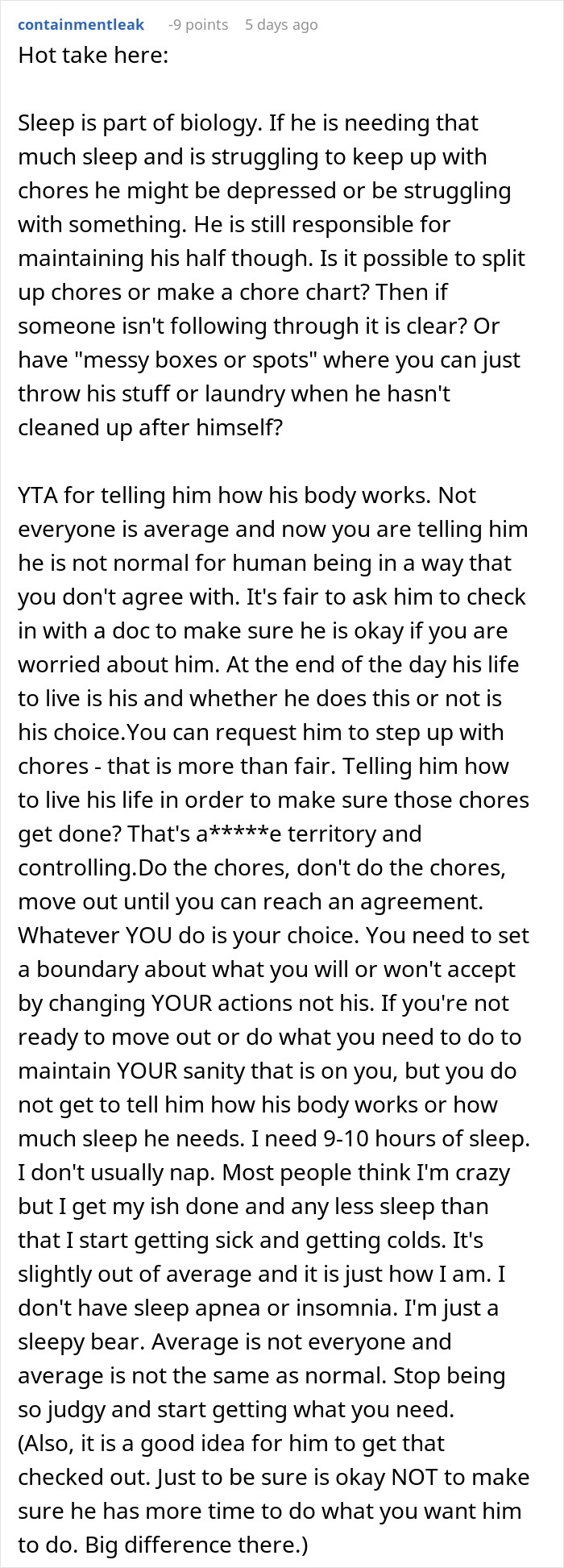Housework is unavoidable. It’s a huge part of being an adult. Whether we like it or not, we have to clean up after ourselves. The reality is that some people go to extreme lengths to dodge the responsibility and then dump it on others.
Case in point, one anonymous woman turned to the AITA online community for help regarding a delicate situation at home. She revealed how she’s forced to do most of the chores while her partner naps a whopping 4 hours every single day, which is far more than the healthy amount. Scroll down for the story in full. Bored Panda has reached out to the author via Reddit, and we’ll update the article as soon as we hear back from her.
Excessive napping indicates that someone might have some serious health issues that they should see a specialist about

Image credits: Wavebreakmedia (not the actual photo)
One woman revealed how she called out her boyfriend for napping for hours instead of helping more with the chores
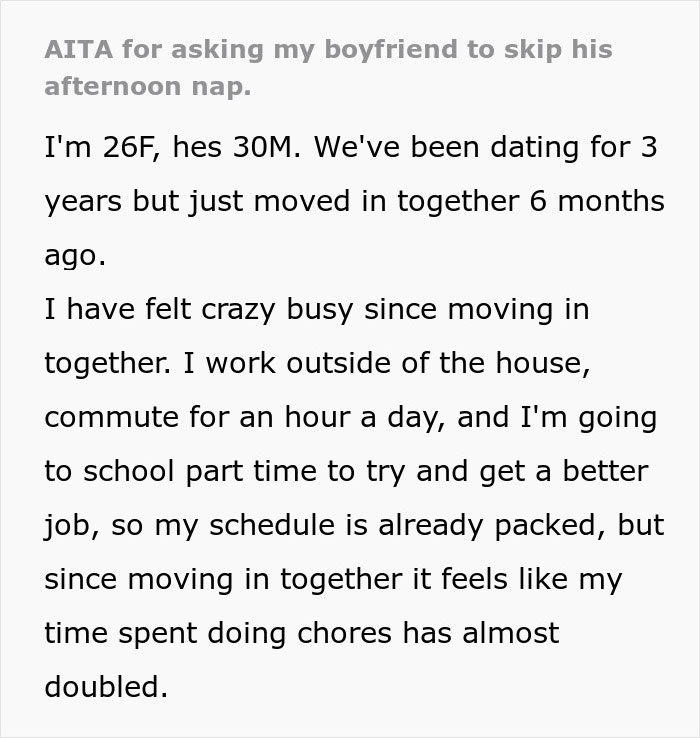


Image credits: YuriArcursPeopleimages (not the actual photo)
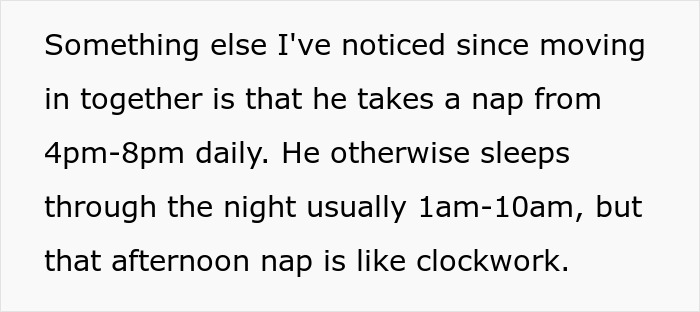
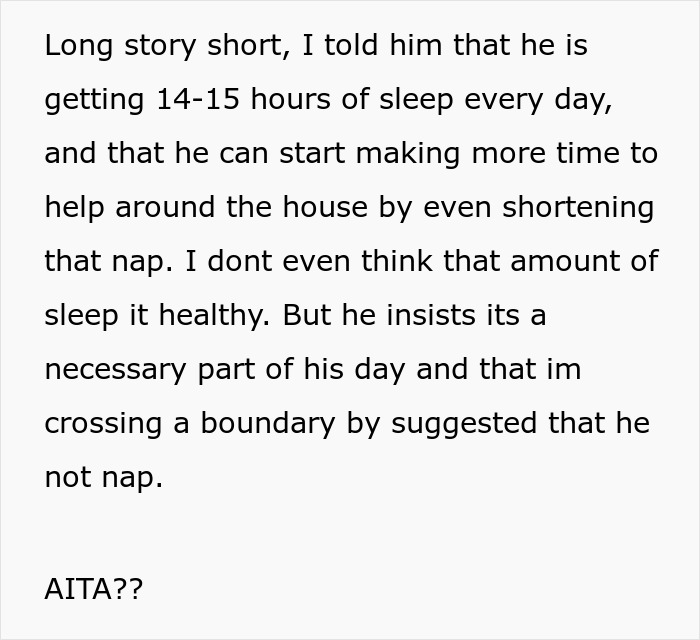
Image credits: throwaway28716374
Adults are advised to nap for 10-20 minutes if they want to feel alert

Image credits: BOOM (not the actual photo)
The OP’s story touches on two main issues. The first is her boyfriend’s abnormal amount of time spent sleeping and napping. The second is that her partner does not do his fair share of chores at home, leaving most of the housework for his girlfriend to do.
To put it rather bluntly, if someone’s sleeping 14-15 hours each day, with 4-hour long naps, they probably need to see a doctor or sleep specialist. They might be dealing with some serious physical or even mental health issues (e.g. depression).
Feeling chronically exhausted and unable to do basic housework to this extent is not normal, and the person has to take steps to alleviate the problem. Not just for themselves but for their partner, too. Sleeping so much is already impacting the relationship. The man doesn’t have enough time or energy to clean up around the house, while his girlfriend is working, studying, and commuting all over the place.
Aside from booking a meeting with some specialists, the man ought to consider looking at how he spends his day in detail. Eating more nutritious food, drinking plenty of water, going outside, and exercising more should help. Greatly reducing caffeine, alcohol, and nicotine consumption is also going to make things better, if these substances are an issue.
According to Healthline, most adults should limit their naps to 10-20 minutes so that they feel refreshed. Longer naps are going to leave you groggy and more tired. However, if you’ve been sleep-deprived, your naps should be long enough to complete a full sleep cycle, i.e. at least 90 minutes.
However, 4-hour naps are nearly 3 sleep cycles long, which is far too much. Especially considering that the man in the OP’s story gets plenty of rest at night, too.
The way that couples divide up the chores has to be fair and make sense for their household
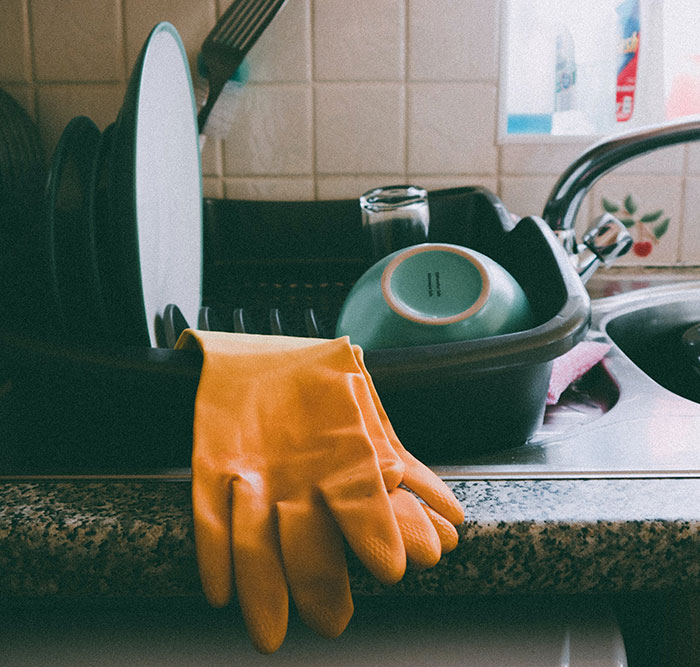
Image credits: Lisa Fotios (not the actual photo)
Dividing up the chores in a fair and logical way is absolutely fundamental in long-term relationships. If this issue doesn’t get addressed, it can lead to a lot of frustration and resentment. That’s only going to gnaw away at the foundations of the relationship.
It becomes very hard to love someone, no matter how fantastic they are, if you constantly have to beg them to do basic things like wash the dishes, vacuum the floor, take out the trash, and do the laundry.
However, the reality is that even in egalitarian marriages, women do more housework and childcare than men, who have more time for leisure. In a recent study by the Pew Research Center, women were found to do around 2 more hours of caregiving and 2.5 additional hours of housework every week.
If both partners work full-time, they need to find a way to share the housework more or less equally. Alternatively, they should consider who spends more time at home so that one person can do slightly more housework while their partner is away.
One saving grace here is that the couple can divide the chores in a way so that they both end up doing less of what they dislike. For example, if one of them deeply loathes doing the dishes, they might pass that responsibility to their partner who doesn’t mind it. Meanwhile, the latter person might detest vacuuming, but their partner actually enjoys it.
There’s no one-size-fits-all approach here. But the bottom line is that these conversations about chores need to happen. Otherwise, the entire relationship is at risk.
Most internet users supported the author of the post and had some practical advice
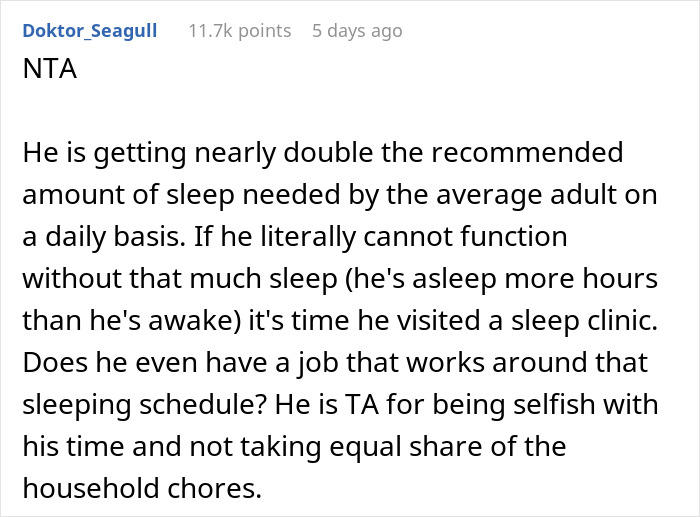
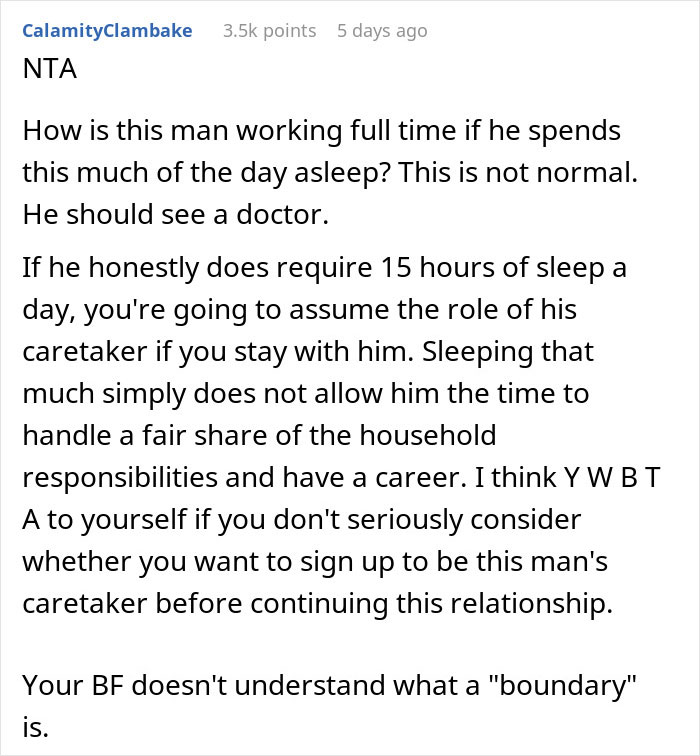
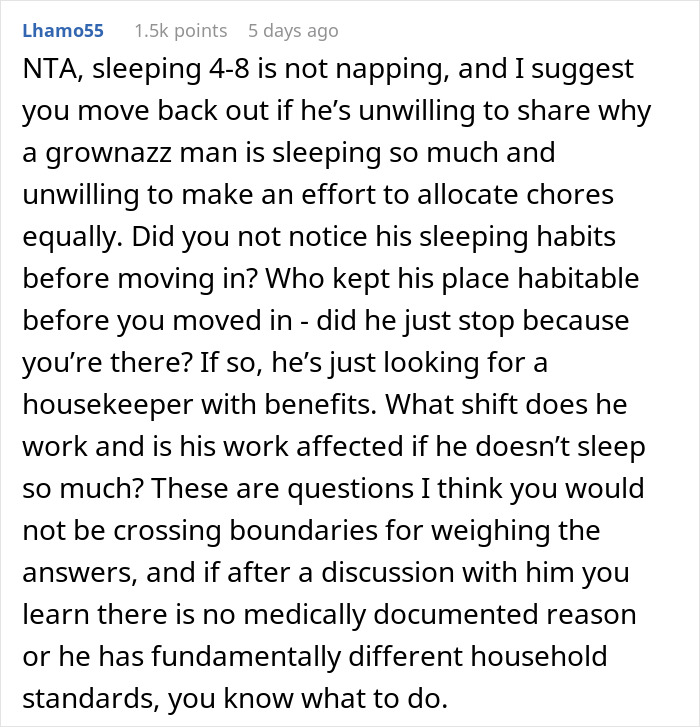

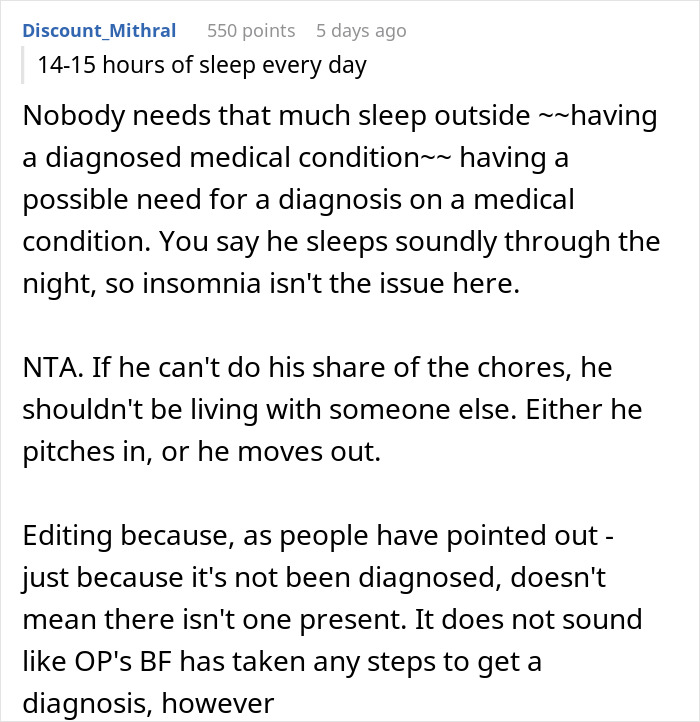
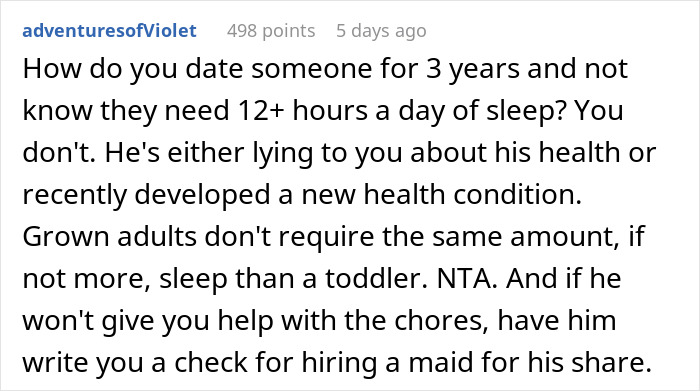

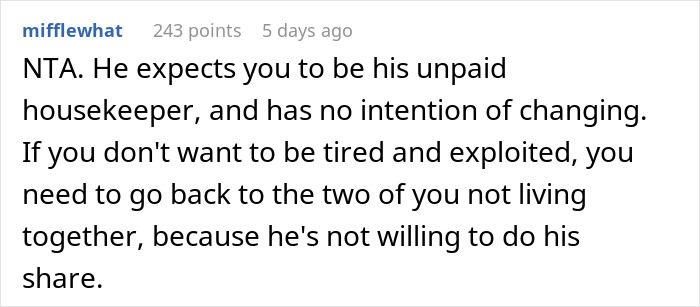


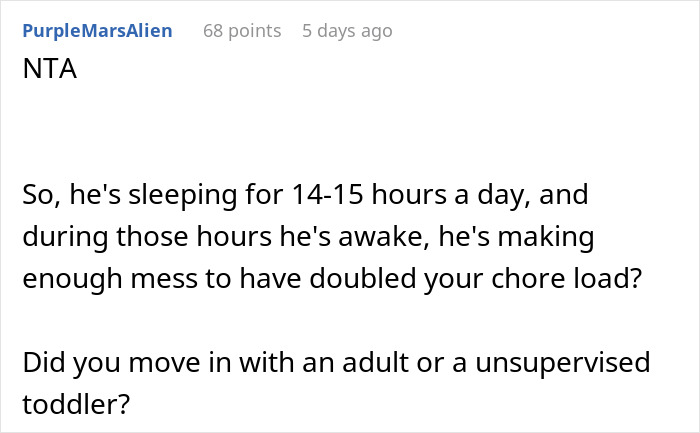
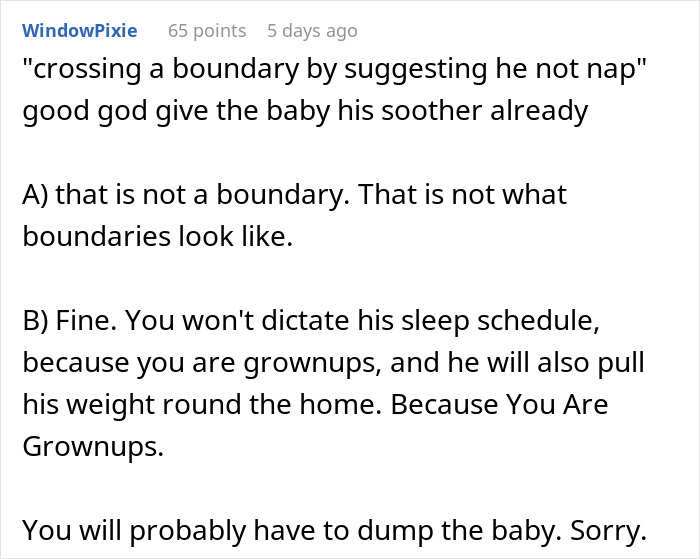



However, some readers had a very different take on the situation. Here’s there’s perspective
